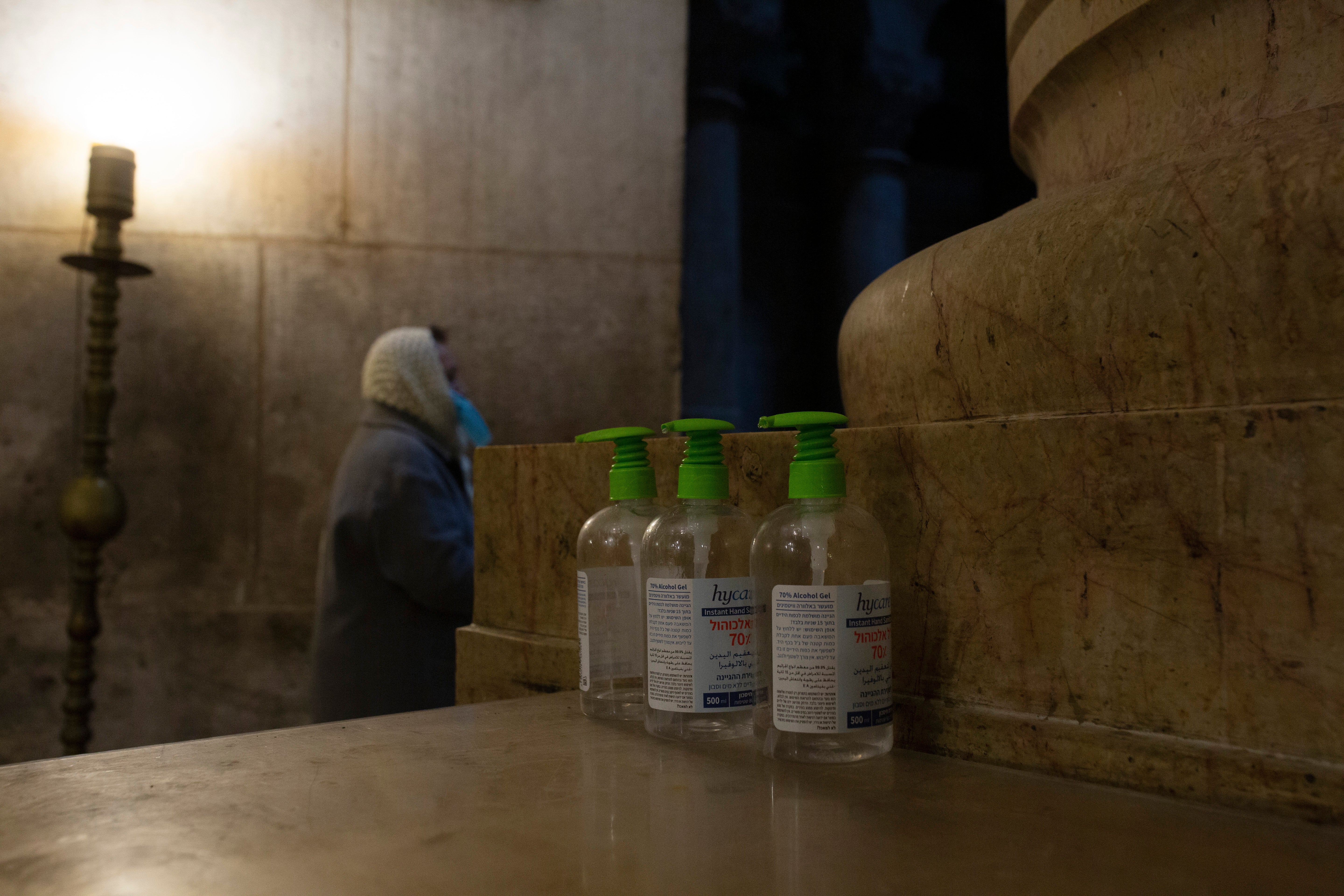WHO raises 'concerns' about Mideast vaccine inequity
The World Health Organization has raised “concerns” about the unequal distribution of coronavirus vaccines in Israel, which has given shots to more than 20% of its population, and the occupied territories, where Palestinians have yet to receive any

Your support helps us to tell the story
From reproductive rights to climate change to Big Tech, The Independent is on the ground when the story is developing. Whether it's investigating the financials of Elon Musk's pro-Trump PAC or producing our latest documentary, 'The A Word', which shines a light on the American women fighting for reproductive rights, we know how important it is to parse out the facts from the messaging.
At such a critical moment in US history, we need reporters on the ground. Your donation allows us to keep sending journalists to speak to both sides of the story.
The Independent is trusted by Americans across the entire political spectrum. And unlike many other quality news outlets, we choose not to lock Americans out of our reporting and analysis with paywalls. We believe quality journalism should be available to everyone, paid for by those who can afford it.
Your support makes all the difference.The World Health Organization has raised "concerns" about the unequal distribution of coronavirus vaccines in Israel, which has given shots to more than 20% of its population, and the occupied territories, where Palestinians have yet to receive any, an official said Monday.
Rights groups say Israel has the responsibility as an occupying power to provide vaccines to Palestinians in the West Bank and Gaza. Israel says it has no such obligation and that its own population — including Arab citizens — is the priority, but that at some point it might consider sharing its supplies.
The Palestinian Authority has accused Israel of “racism” for not sharing its vaccines, but it has made no formal request to Israel and says it is procuring its own supplies through a WHO program and agreements with private companies.
The dispute reflects global inequality in access to vaccines, as wealthy countries vacuum up the lion's share of doses, leaving poorer countries even farther behind in combating the public health and economic effects of the pandemic. It has also emerged as another flashpoint in the decades-old Mideast conflict, even as the virus has wreaked havoc on both sides.
“We’ve raised a number of public health concerns and equity concerns about this unequal distribution of vaccines or unequal access to vaccines," Dr. Gerald Rockenschaub, head of the WHO office for the Palestinian territories, told The Associated Press.
“We have discussions with the Israelis on a number of levels, also from higher levels of our organization, trying to explore the option, whether Israel could consider to allocate vaccines" to the Palestinians, he said, adding that the “primary target” would be front-line health workers.
Israel boasts one of the earliest and most successful vaccination campaigns in the world, with some 2 million doses administered since late December in a population of more than 9 million. The campaign includes Arab citizens of Israel and Palestinians living in annexed east Jerusalem.
Israel captured east Jerusalem, the West Bank and Gaza in the 1967 war, territories the Palestinians want for their future state. Israel withdrew from Gaza in 2005, and two years later the Islamic militant group Hamas seized power from rival Palestinian forces. The Palestinian Authority administers parts of the occupied West Bank and helps coordinate health care in Gaza.
Israeli Health Minister Yuli Edelstein said last week that Israel has been “closely cooperating” with the Palestinian Authority since the beginning of the crisis and might consider sharing vaccines at some point. “But we do have to understand that our first and foremost responsibility is to vaccinate the citizens of the state of Israel,” he told the AP.
Israeli and international rights groups say Israel is required to provide vaccines under international law related to military occupation. Critics point to the fact that hundreds of thousands of Jewish settlers in the West Bank are eligible for the vaccine because they are Israeli citizens, while the 2.5 million Palestinians living in the territory are not.
“Nothing can justify today’s reality in parts of the West Bank, where people on one side of the street are receiving vaccines, while those on the other do not, based on whether they’re Jewish or Palestinian,” Omar Shakir of Human Rights Watch said in a statement. “Everyone in the same territory should have equitable access to the vaccine, regardless of their ethnicity.”
Under the Oslo accords signed in the 1990s, the Palestinian Authority is responsible for health care in the territories it administers, while both sides are to work together to combat epidemics.
The Palestinian Authority hopes to get its first doses in the coming weeks through a WHO program known as COVAX, which aims to procure vaccines for needy countries but has been slow to get off the ground. Rockenschaub said the Palestinians would receive their first doses from the program as early as the beginning of February “under ideal circumstances.”
The Palestinian Authority's reluctance to publicly ask Israel for help could reflect concerns that doing so would open it up to allegations from Israel and others that it was unable to provide for its own people or that it is not ready for statehood.
Rockenschaub declined to weigh in on the political dispute, but said that from a public health standpoint Israel has an interest in the Palestinians being vaccinated.
“It will be very difficult to ensure full protection of the Israeli population while not ensuring also that adequate vaccinations are done on the Palestinian side," he said, pointing to the estimated 140,000 Palestinians who regularly cross into Israel for work.
He added that it's important to ensure that Palestinian medical workers are adequately protected “so that their health system doesn't collapse.”